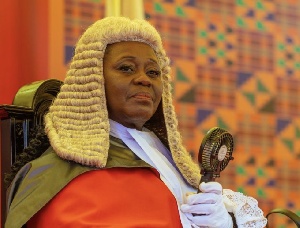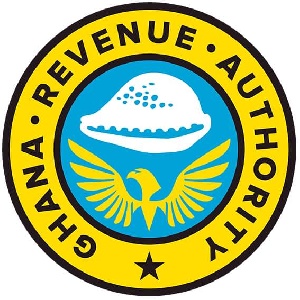- Home - News
- Elections 2024
- News Archive
- Crime & Punishment
- Politics
- Regional
- Editorial
- Health
- Ghanaians Abroad
- Tabloid
- Africa
- Religion
- Photo Archives
- Press Release
General News of Saturday, 26 April 2025
Source: www.ghanawebbers.com
Is NPP crying more than the bereaved in the Chief Justice saga?
In a rapidly changing world, following the law is becoming more complex. Public opinion often calls for deviation from established legal norms. However, we must remember that “the law is the law.”
This truth guides us on our journey toward justice.
In the ongoing Chief Justice saga, some are exaggerating the situation. They dramatize events to gain attention and draw public interest.
On April 22, 2025, President Mahama suspended Chief Justice Gertrude Araba Esaaba Sackey Torkornoo. He did this under Article 146(6) of Ghana's 1992 Constitution. This followed a prima facie case based on petitions for her removal.
The decision involved consultations with the Council of State, following constitutional guidelines. A five-member committee was formed to investigate the matter. According to Article 146, a Chief Justice can be removed for “stated misbehaviour” or “inability to perform duties.” Thus, President Mahama's actions are rooted in legal provisions and reflect a serious inquiry.
The New Patriotic Party (NPP) strongly opposes Chief Justice Torkornoo’s suspension by President Mahama. Their response includes plans for nationwide demonstrations and claims of politicizing the judiciary.
This raises concerns about their true motivations. They argue that judicial integrity is at risk while reacting robustly to a legal process. Such reactions may worsen the politicization they claim to oppose.
Are they genuinely concerned about judicial integrity? Or are they protecting political interests by framing the suspension as politically motivated?
While calling for protests, it’s important to note that the investigative committee has not released its findings yet. Legal matters require patience and adherence to due process.
The Ghana Bar Association (GBA) emphasizes upholding the rule of law during this process. The NPP's demonstrations before any outcome could undermine judicial integrity.
Ghanaians should question the NPP's motivations. Why have prominent party members dismissed petition legitimacy without waiting for conclusions?
Legal professionals must uphold high ethical standards. Commentators trained in law should avoid making judgments on ongoing cases to maintain impartiality.
It is concerning that some lawyers comment on a sub judice case for political reasons.
Moreover, NPP’s intervention questions their understanding of constitutional provisions and judicial independence. By insisting on reversing Torkornoo’s suspension, they pressure the investigative committee and compromise its integrity.
Judicial independence is vital in democracy; all parties must respect it and follow constitutional processes.
Instead of resisting, political entities should foster an environment conducive to objective examination and resolution of issues.
The committee’s investigation outcome must be respected regardless of political interests. The judiciary's role is to ensure justice for all and hold officials accountable without bias.
Ultimately, NPP's reaction seems aimed at securing political advantage rather than protecting judicial integrity within a legitimate constitutional process.
Democracy involves challenging authority while upholding institutions that protect our rights and liberties. Ghanaians should support thorough investigations that strengthen our judicial system and reinforce rule of law.
Justice must always transcend political affiliations.











